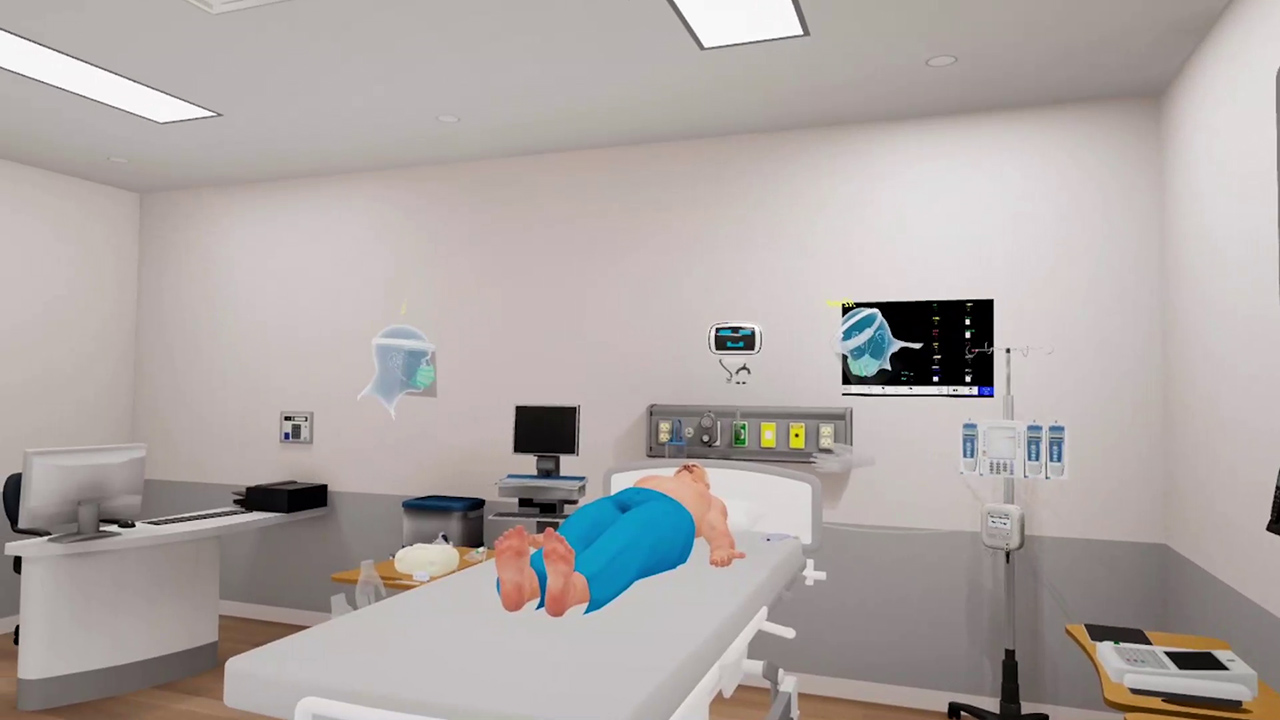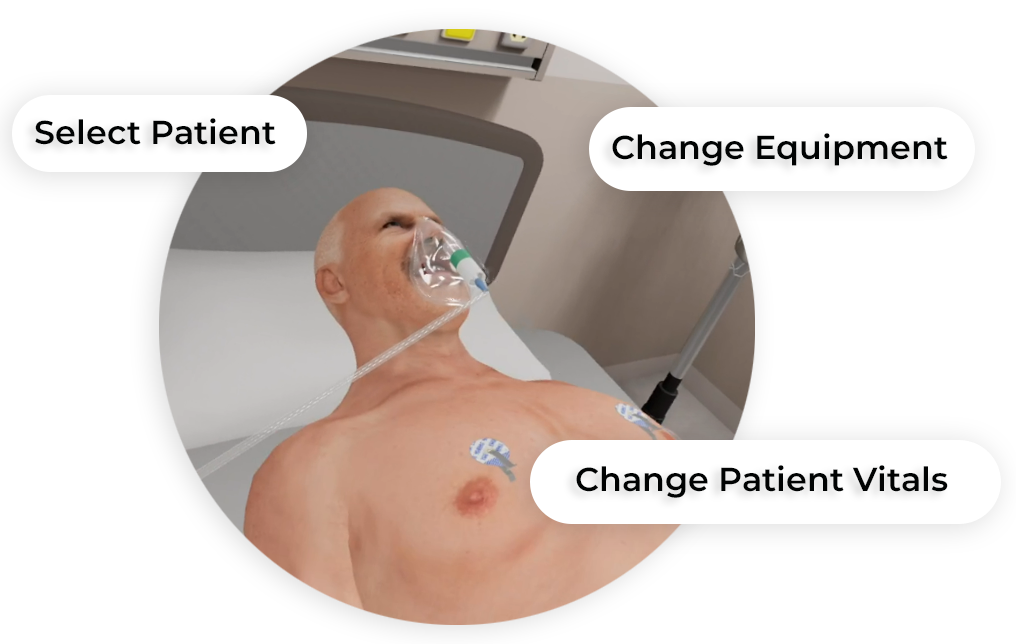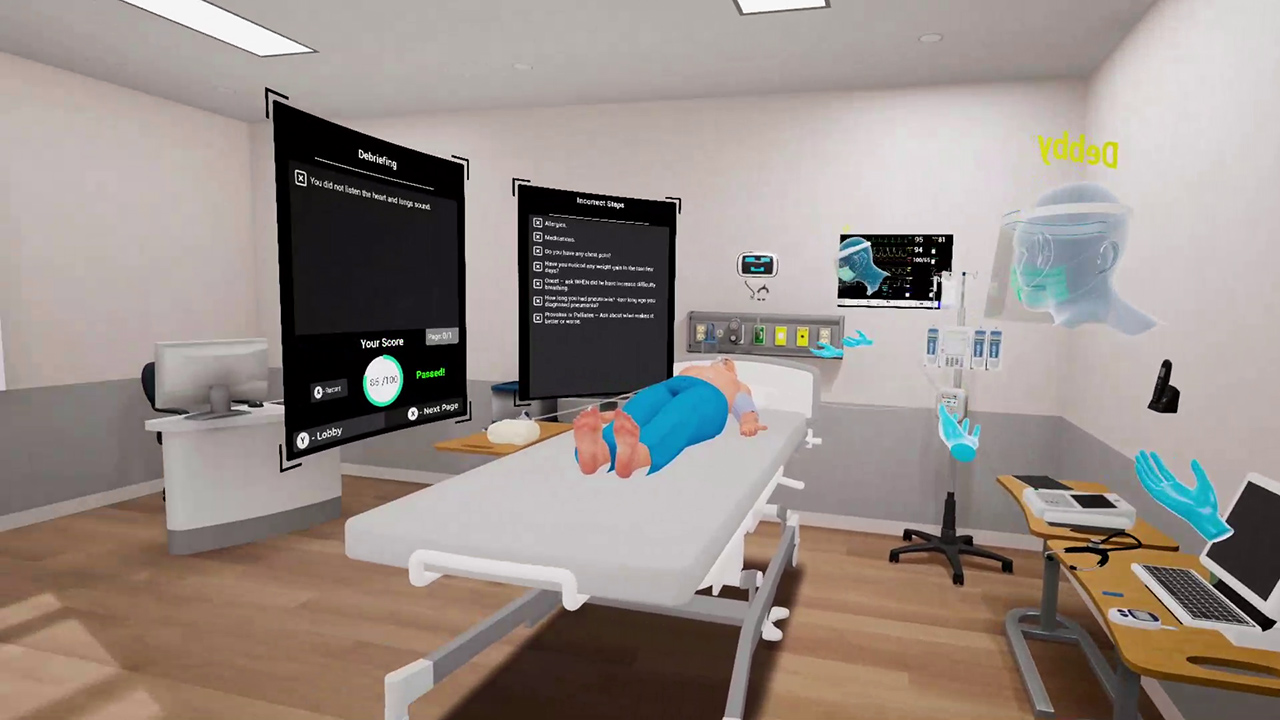Pneumonia
Jim Smith, a 64 yr old male, was admitted 3 days ago. He finds it difficult to breathe and has an increasing productive cough. Jim has been diagnosed with a community acquired pneumonia and started on Moxifloxacin 400mg IV daily. He is showing resistance to antibiotics with his condition progressing to sepsis and respiratory failure.
This multiplayer VR session is designed to help learners identify and treat an unstable emergency patient with severe pneumonia.
- Review an approach to the unstable ward patient
- Prioritize the initial investigations and therapies, including ventilatory support
- Review the initial management of the patient with pneumonia

- Surviving Sepsis Campaign: http://www.survivingsepsis.org/ Guidelines/Pages/default.aspx
- Rosen’s Emergency Medicine: Chpts 2, 6, 66, 130
Customize Your Program
Get rid of the editor. Adopt in-VR customization.
MedVR Education is bringing to you in-VR customization that will enable you to put together your own simulations by making selections from a wide range of feature choices.
- Select patient from a diverse background
- Choose preferred virtual environment
- Configure patient vitals
- Define simulation duration
- Create patient history and train with AI-Humans
- Customize session-end debriefing
- …..many more to come

 AI Patient Assessment
AI Patient Assessment Natural Language Processing
Natural Language Processing Multi-player
Multi-player
Sessions Physics-Based Interaction
Physics-Based Interaction
Core Skills Training

Pneumonia
In this scenario, the user is required to check appropriate lab work for the patient who is already on nasal cannula. The user will conduct an assessment, recognize respiratory failure, and put the patient on nebulizer. A chest x-ray helps identify pneumonia. Recognizing the instability of the patient, the user will be required to call a senior resident or staff. Necessary affordance are made available to the learners in this multiplayer VR session helping them practice the tasks will ease and efficiency.
Debriefing
End-of-task debriefing to assess one’s performance, evaluate actions, and get the most out of the session. The debriefing includes crucial points related to the scenario.
- Thorough patient assessment
- Completion of necessary steps
- Correct medication administration to patient
- Sequential completion of task
- Execution of time-sensitive tasks







